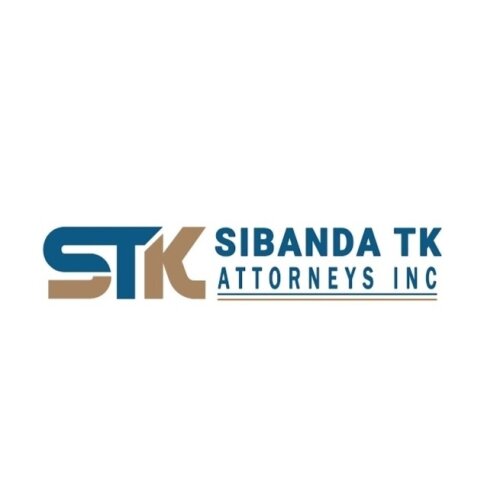Best Real Estate Contracts and Negotiations Lawyers in Kwamhlanga
Share your needs with us, get contacted by law firms.
Free. Takes 2 min.
Free Guide to Hiring a Real Estate Lawyer
List of the best lawyers in Kwamhlanga, South Africa
About Real Estate Contracts and Negotiations
Real estate contracts and negotiations refer to the legal agreements and discussions involved when buying, selling, leasing, or transferring property. These contracts set out the rights and obligations of all parties, outlining important terms like purchase price, special conditions, transfer dates, and what happens if things go wrong. The negotiation process helps ensure each party’s interests are fairly represented, and that the agreement complies with South African law. Real estate transactions can be complex, with significant financial and legal implications, making careful contract drafting and negotiation essential.
Law in Kwamhlanga, South Africa: A Brief Overview of Real Estate Contracts and Negotiations
Kwamhlanga, located in the Mpumalanga Province of South Africa, follows the country’s broad legal framework regarding real estate. Property transactions are guided by national statutes such as the Alienation of Land Act, the Deeds Registries Act, and the General Law Amendment Act, as well as common law precedents. Local municipal by-laws, land use zoning, and regional policies can further impact deals. Contracts must generally be in writing, properly signed, and sometimes witnessed to be legally binding. Local conveyancers, attorneys, and estate agents play crucial roles in helping individuals successfully complete property transactions in compliance with the legal requirements.
Why You May Need a Lawyer
There are several situations where seeking the advice or assistance of a qualified lawyer is recommended in real estate contracts and negotiations in Kwamhlanga:
- You are buying or selling residential, commercial, or agricultural property.
- You are leasing property for business or personal use and need to understand your rights.
- You want to ensure that the contract terms are fair and legally compliant.
- You encounter disputes regarding payment, transfer of ownership, or breach of contract.
- You need to resolve boundary disputes or zoning/land use issues.
- There are complex parties involved, such as deceased estates, trusts, or companies.
- You suspect misrepresentation or non-disclosure of property defects.
- You need support navigating restrictive conditions, servitudes, or rights of way on the property.
Lawyers help protect your interests, clarify complex legal jargon, handle negotiations, and ensure that all paperwork is completed accurately and filed with the relevant authorities.
Local Laws Overview
Key aspects of real estate law in Kwamhlanga (and South Africa generally) include the following:
- Written Contracts: The Alienation of Land Act requires property sale agreements to be in writing and signed by all parties to be valid.
- Registration of Transfer: Ownership is transferred through registration at the Deeds Office, usually by a conveyancing attorney.
- Due Diligence: Both buyers and sellers should ensure that there are no outstanding municipal rates, taxes, or hidden defects.
- Compliance Certificates: Electrical, plumbing, beetle, and gas certificates may be needed before transfer.
- Deposit and Guarantees: Deposits are usually held in trust by estate agents or attorneys until transfer, and banks may require guarantees for the balance.
- Voetstoots Clause: Properties are often sold “as is” (voetstoots), placing responsibility on the buyer to inspect the property and on the seller to honestly disclose known defects.
- Cooling-Off Period: Some residential purchases qualify for a statutory 5-day cooling-off period for buyers.
- Bond Registration: If a home loan is required, bond registration is a key step handled by attorneys.
- Land Use and Zoning: Municipal regulations may impact what you can legally do with a property.
Understanding these elements will help you navigate your transaction safely and efficiently.
Frequently Asked Questions
What is a real estate contract?
A real estate contract is a legally binding agreement between a buyer and seller (or landlord and tenant) setting out the terms for transferring or leasing property.
Do I need a lawyer to buy or sell property in Kwamhlanga?
While not strictly required, using a lawyer ensures your rights are protected, all legal requirements are met, and the process is smoother, especially for complex transactions.
Are verbal agreements for property in Kwamhlanga valid?
No. The Alienation of Land Act requires all agreements for the sale of property to be in writing and signed to be valid and enforceable.
How can I check if there are disputes or liens on a property?
You or your lawyer can search the property’s title deed at the Deeds Office and request a rates clearance certificate from the local municipality.
What is a voetstoots clause, and how does it affect me?
“Voetstoots” means buying the property as is, including all existing faults, unless the seller deliberately conceals defects.
What is a cooling-off period for real estate contracts?
For certain residential property sales below a specific value, buyers have a 5-business-day period to cancel the contract without penalty.
What happens if a party breaches the property contract?
The non-breaching party may seek remedies such as cancellation, damages, or specific performance through the courts or negotiation.
How long does it take to complete a property transfer?
Transfers typically take 2-3 months, but timing may vary depending on finances, municipal clearance, and other factors.
Do I have to pay tax when buying or selling property?
Yes, buyers may pay transfer duty (a tax based on the property value), and sellers may be liable for capital gains tax on profits made.
Can foreigners buy property in Kwamhlanga?
Yes, foreigners can generally purchase property in South Africa, but there may be additional regulations or bank requirements to consider.
Additional Resources
For more information and assistance, consider the following resources:
- Deeds Office (Mpumalanga): Source of property registration and title deed information.
- Mpumalanga Provincial Government Human Settlements Department: For guidance on housing and land issues.
- Law Society of South Africa: For a list of qualified conveyancing attorneys in the region.
- Estate Agency Affairs Board (EAAB): For complaints or verification of estate agents’ credentials.
- Local Municipality (Thembisile Hani Local Municipality): For information on municipal rates, zoning, and compliance certificates.
- South African Banks: For home loan and bond registration processes.
Next Steps
If you need legal assistance regarding real estate contracts and negotiations in Kwamhlanga, consider the following steps:
- List your concerns and gather all documents related to your property transaction.
- Consult with a qualified conveyancing attorney or real estate lawyer who is familiar with local processes and laws.
- Discuss your situation thoroughly and ask for a clear explanation of your legal position and options.
- Follow up on due diligence checks such as title deed searches and municipal rates clearance.
- Carefully review all contracts before signing, and ensure your lawyer is involved before any commitment is made.
- Keep all correspondence and signed documents in a safe place for future reference.
Taking proactive steps and seeking expert guidance early in the process can save you time, money, and stress, resulting in a smoother and safer transaction.
Lawzana helps you find the best lawyers and law firms in Kwamhlanga through a curated and pre-screened list of qualified legal professionals. Our platform offers rankings and detailed profiles of attorneys and law firms, allowing you to compare based on practice areas, including Real Estate Contracts and Negotiations, experience, and client feedback.
Each profile includes a description of the firm's areas of practice, client reviews, team members and partners, year of establishment, spoken languages, office locations, contact information, social media presence, and any published articles or resources. Most firms on our platform speak English and are experienced in both local and international legal matters.
Get a quote from top-rated law firms in Kwamhlanga, South Africa — quickly, securely, and without unnecessary hassle.
Disclaimer:
The information provided on this page is for general informational purposes only and does not constitute legal advice. While we strive to ensure the accuracy and relevance of the content, legal information may change over time, and interpretations of the law can vary. You should always consult with a qualified legal professional for advice specific to your situation.
We disclaim all liability for actions taken or not taken based on the content of this page. If you believe any information is incorrect or outdated, please contact us, and we will review and update it where appropriate.









